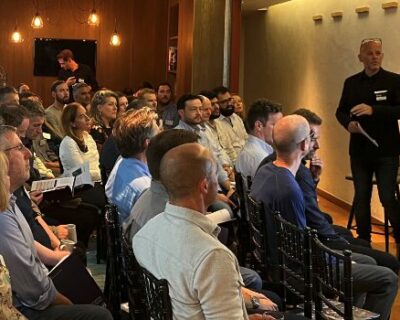In periods of recession or difficult trading, the role of the CFO comes to the fore.
Everyone will expect the CFO to follow the obvious principles like “cash is king,” “ cut once, cut hard,” and “plan for the worst,” but there is far more to the role for a CFO looking beyond survival to value add.
At this stage, having a strong and supportive relationship with the CEO is fundamental to success.
1. Project calmness under pressure and always have a positive solution proposal for a problem
Anticipate future needs. Don’t wait to be asked (e.g. profitability by product, market, channel etc.) Help prioritise actions through understanding impact. Always test the business model to destruction – what set of circumstances will lead to failure irrespective of mitigation? Anything less can be dealt with. Start talking about creating headroom to be used to invest for growth in future not just about cost cutting.
2. Ensure flow of communication is good with all departments
Find out what discussions are going on, not just what the data or dept heads say. Encourage the whole finance team to think from the business perspective and to engage widely across all departments to understand what issues need to be addressed. Keep close to the HR manager; they tend to hear the chatter well before it gets to senior management.
3. Ensure decisions are based on the best quality information available (not gut feel or anecdotal evidence)
But be prepared to be roughly right with some thought-through assumptions where clear data isn’t available. Don’t let the major data-driven conclusions be undermined by challenges against insignificant assumptions. Quantify impact and dismiss. Don’t wait to be 100% sure: It will be too late to act.
4. Ensure decisions are made in good time
Force the senior management team to discuss unpalatable situations and make rational contingent decisions. Don’t wait for the problem to be right on top of you when passions run high and a compromise quick fix can seem attractive.
5. Manage a disciplined, transparent resource allocation
Those who come up with the best propositions should get the most resources (not those who shout loudest), they should be continually challenged. Fairness and the perception of process fairness are vital to keep employees supportive in difficult times.
6. Manage expectations continually
Stakeholders tend to overreact to bad surprises, maintaining confidence is key so don’t overpromise. Keep updates factual as far as possible and provide scenarios not forecasts until you have high confidence in the outcome deliverability.
7. Keep learning
However much experience you had before, this will be a time of accelerated new experience. Make sure you are analysing the new information and feeding it into decision making.
8. Maintain collective responsibility for plan execution
Robust debates behind closed doors amongst the senior team are essential for making good decisions. Once decided, all must be supportive of executing on the plan. Bad execution will invalidate even the best plan.
9. Remember survival is not enough
Focus on short-term actions as a necessary bridge to a better end point. Everyone needs to believe the pain will be worth in the long term.
10. Be the role model for resilience
Resilient businesses have resilient people and resilient leaders inspire resilience in their employees.
Resilience is about belief in being able to get through difficult situations which can come from confidence in yourself or confidence in the people around you. Building confidence requires commitment and determination to be on top of the situation all the time with hundreds of small decisions all adding up to a consistent, coherent plan execution. One large careless or rash decision can undermine this very quickly.
For many employees in fast-growth tech companies, the current downturn will create a first-time recognition that alongside the desire for their job to be exciting and challenging, there is also a need for security.
Those companies with a top-quality CFO will project an air of competence and credibility that will clearly differentiate themselves from those more reliant on just culture or charisma to keep the team on side.












